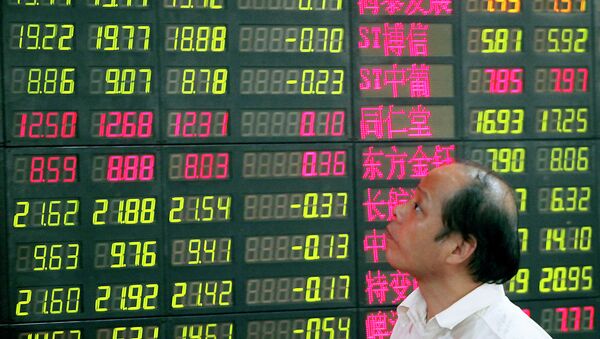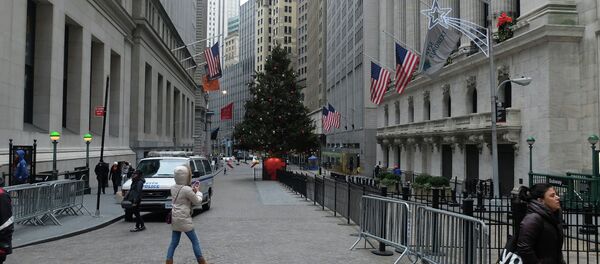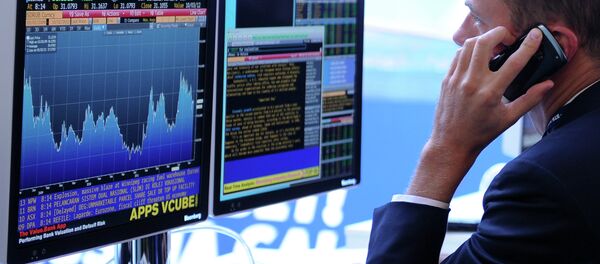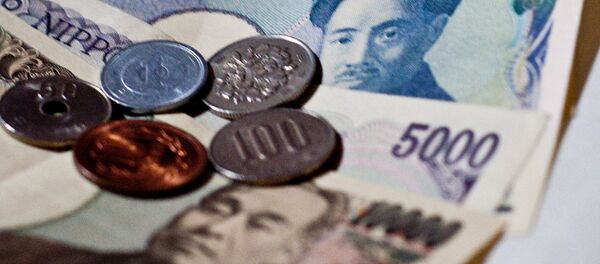The principal factors in the Asia-Pacific markets on Monday were robust economic growth in the US that pulled US stocks and Treasuries down last Friday, as well as the more modest growth anticipations in Japan and the yet another wave of monetary easing in mainland China. The former two factors weighed on Asian Stocks, while the latter triggered a solid rally in China. As a result, the mixed Asia-Pacific markets retreated on the average.
The MSCI APEX Index lost 1 percent in Tokyo, and Japan’s broad Topix Index slid below its 7-year peak. A stronger dollar added toinvestors’ concern, advancing to its new 11-year high against the euro. The European Central Bank (ECB) will start its full-scale monetary easing program on Monday. Japan’s recovery from the most recent recession turned out to be weaker than expected, Monday’s data showed. All in all, investors’ confidence is weak in Asia-Pacific, which is not a good sign at the week’s start.
Japan’s economy expanded 1.5 percent year-on-year in Q4, while the preliminary figure had been 2.2 percent. As a consequence, the Nikkei 225 Index retreated 1 percent. The trading volumes, luckily, were thin, meaning little losses for most real economy enterprises. The Topix lost 0.6 percent. Only 1.798 bln equities were bought and sold Monday, the least since December 30.
Hong Kong’s Hang Seng Index would have closed flat as well if not for the influx of money from the mainland via the Stock Connect scheme. Mainland’s shares pushed Hang Seng to rise by 0.8 percent at the close.
Mainland China was a bright spot today, as monetary policies are looser in the Communist nation now. Mainland’s regulator announced several initiatives to spur competition in the equity trading, including a liberalized issuing of licenses. To add to the optimism, the banking sector is now enjoying even lower reserve requirement ratios (RRRs). What it means is that a commercial bank does not need to store as much cash liquidity as a reserve as it had to previously. As a result, there is now more money lent and borrowed via banks. This creates a riskier situation for the whole banking sector, for the moment it is a positive development, allowing the market participants to make some money in the short-term.
The CSI300 Index of the biggest Shanghai and Shenzhen sticks rose 1.7 percent. Shanghai Composite added 1.9 percent. The ChiNext Index, aka the ‘Chinese Nasdaq’ as this index lists all the new and coming startups and tech shares, added 2 percent. Of course, the banking sector led the gains, with Bank of China rising 5.2 percent, Agricultural Bank of China adding 4.4 percent, Industrial Bank 8.7 percent up.
Stock markets in Europe are most likely to post losses on Monday due to the last week’s Wall Street losses, a slight decrease in Germany’s exports (seen as the Eurozone’s driver of growth) and the renewed Greek risks as the Eurozone feels Athens have proposed a reform planning of an insufficient scale.
However, Europe is the place to be for an investor these days. In the recent weeks, European shares have repeatedly set fresh multi-year records and are now outperforming the S&P. The reason is simple: the monetary easing the ECB starts Monday will accelerate inflation and provide a significant stimulus to the real economy. The money will end up in the stock markets, meaning in a matter of months most European equities will cost much more their current value. Besides, industrial manufacturing and retail sales in Europe have risen to surprise most market participants, the latter adding 5.3 percent in January as compared to the anticipated 2.7 percent.
“There’s no point worrying about a small correction,” Olgerd Eichler of the Frankfurt-based Mainfirst Bank said. “People continue to be behind the curve regarding economic growth in Europe. Stocks still have huge upside, and the particular interest in Germany makes sense. The DAX has plenty of businesses that are either very dependent on the economy, or huge beneficiaries of the lower euro.”
A stronger dollar, resulting from the aggressive government-driven expansion of the US economy, is essentially weighing on other currencies, to the great pleasure of the export-oriented Japan and, most recently, the Eurozone. The US thus are either moving straight towards an economic isolationism or they will explore the new markets very soon.As the competition between the advanced economies intensifies, the dollar and the euro are likely to even before the year’s end.
Another effect of a stronger dollar is a continued decline in commodities. Brent crude oil is now 0.5 percent cheaper, at $59.46/bbl. WTI is still below $50/bbl after Friday’s decline of 2.3 percent, at $49.56 now.







